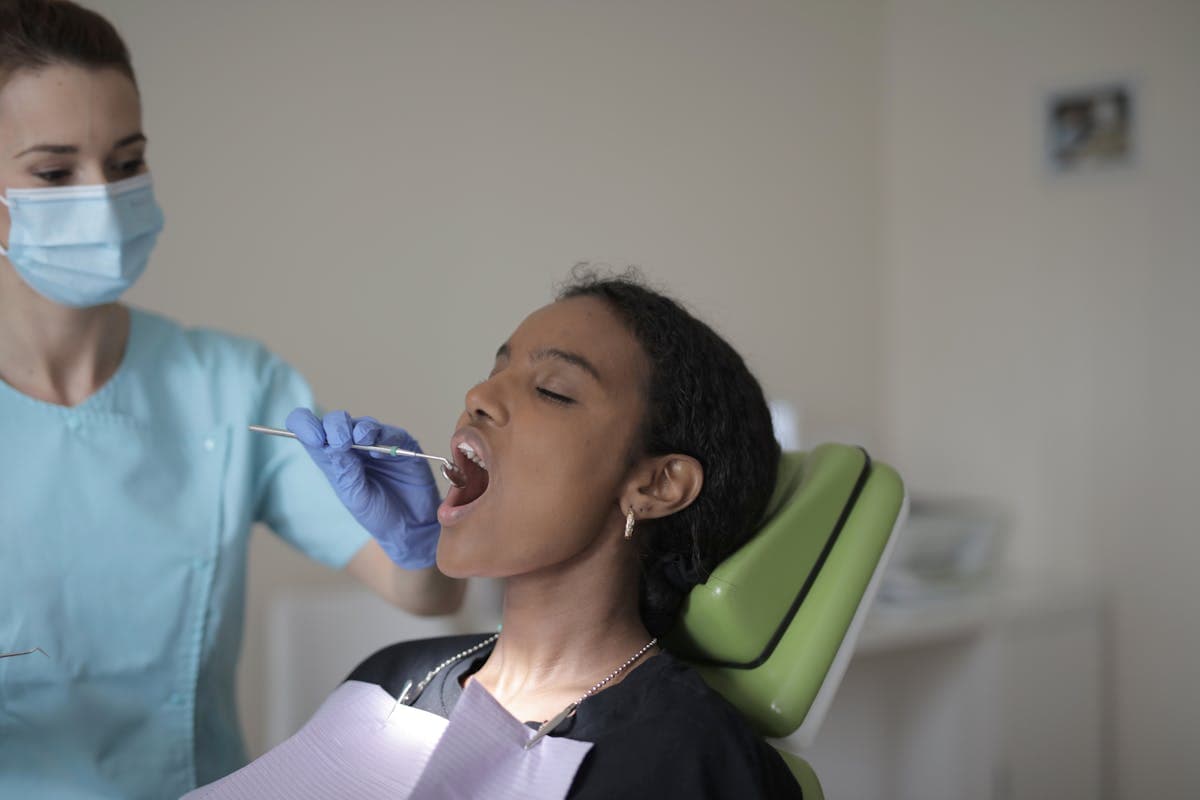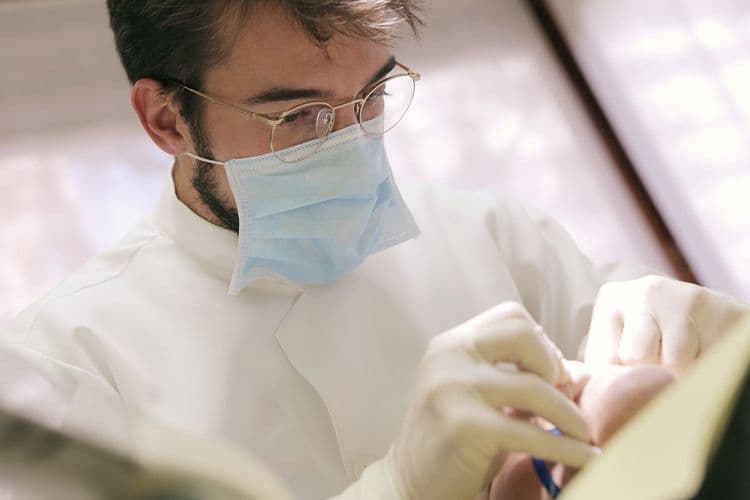The post-operative healing period following an operculectomy, a surgical procedure aimed at removing the gum tissue overlying a partially erupted tooth, generally ranges from a few days to two weeks. However, this timeline can vary greatly based on individual health factors, the complexity of the procedure, and the quality of post-operative care. A thorough understanding of the healing process, potential complications, and methods to expedite recovery can assist patients in achieving a swift and uneventful recuperation. Let’s explore this topic further.
Understanding Operculectomy Procedure
A remarkable number of patients grapple with the complexities of an operculectomy procedure. As a surgical method, operculectomy involves the removal of the operculum, a soft tissue flap covering a partially erupted tooth, often the wisdom tooth. This procedure is primarily performed to mitigate the risks associated with pericoronitis, a dental disorder causing inflammation and infection. One of the significant operculectomy benefits is the reduction in oral discomfort and the prevention of complications like abscesses and periodontal disease. However, like any surgical procedure, operculectomy risks exist, including possible infection, bleeding, and damage to surrounding teeth or nerves. Understanding these aspects of operculectomy can help patients better navigate their dental health decisions.
Normal Operculectomy Recovery Timeline
Despite the initial discomfort that may follow an operculectomy procedure, patients typically experience a straightforward recovery.
- The first 24 hours post-surgery are often the most uncomfortable, with swelling and pain being the most common symptoms, which can be managed with appropriate medication.
- Within the first week, patients should notice a significant decrease in pain and swelling, signifying the healing process is underway.
- By the end of two weeks, most patients are completely healed, resuming their normal oral hygiene practices.
It is essential to follow postoperative care instructions provided by the dentist, including a soft diet and specific oral hygiene practices to aid in the healing process. Timely follow-ups are vital to guarantee that the healing process is progressing as expected.
Factors Influencing Healing Time
While the majority of patients experience a smooth and swift recovery post-operculectomy, the healing time can vary depending on several factors. A significant determinant is the healing environment. A clean, sterile environment reduces the risk of infection, thereby accelerating the healing process. The patient’s overall health condition and immune system efficiency also play crucial roles in recovery time. For instance, individuals with diabetes may take longer to heal due to impaired blood circulation. Patient age is another critical factor. Younger patients generally heal quicker than older ones due to better tissue regeneration capacity. The surgeon’s skill and the complexity of the operculectomy are further influencing factors. Each patient’s healing time is unique, reflecting these variables.
Signs of Healthy Recovery
As patients navigate the healing process post-operculectomy, there are several key signs indicative of a healthy recovery. The first recovery milestone is the reduction in swelling and pain. This healing indicator suggests that the body is responding well to the procedure. Furthermore, the normalization of oral functions such as eating, speaking, and swallowing without discomfort or difficulty is another positive sign. Finally, the appearance of healthy, pink tissue around the treated area, free from any sign of infection or abnormality, is a vital marker of recovery.
These are the primary recovery milestones to look for post-operculectomy. Observing these healing indicators offers reassurance of a successful procedure and a smooth healing journey.
Potential Complications Post-Operculectomy
Following the recovery phase of an operculectomy, there are several potential complications that may arise. These can range from infection risks, due to the open wound and exposed tissue, to the management of post-operative pain. It is essential to comprehend these potential issues to guarantee ideal healing and patient comfort.
Understanding Post-Operculectomy Complications
Numerous potential complications may arise in the aftermath of an operculectomy procedure, making it essential to understand and anticipate these challenges.
- Pain and Swelling: These are common post-operative occurrences. Adequate post-operative care, including the use of prescribed pain medications and cold compresses, can help manage these symptoms.
- Bleeding: A key risk factor, post-operative bleeding must be monitored closely. Applying pressure with a clean gauze usually controls it.
- Dry Socket: This condition, characterized by a throbbing pain a few days after surgery, can delay the healing process.
Understanding these complications and their respective risk factors can greatly improve patient outcomes, ensuring a smooth healing process post-operculectomy. Remember, proper post-operative care is paramount to avoid these complications.
Infection Risks After Operculectomy
While an operculectomy procedure often proceeds without any major issues, the risk of infection is an important consideration post-surgery. Infection can occur due to a variety of factors such as non-adherence to post-operative care instructions or lack of surgical hygiene during the procedure.
Infection prevention is key and can be achieved through diligent oral hygiene, including regular rinsing with antibacterial mouthwash approved by the operating surgeon. In some cases, antibiotic prophylaxis may be recommended.
Patients should be vigilant for signs of infection such as pus discharge, persistent pain, or fever. If these symptoms occur, immediate medical attention should be sought. Ensuring surgical hygiene and adhering to post-operative care instructions are pivotal to minimizing the infection risks after operculectomy.

Pain Management Post-Operculectomy
Beyond the risk of infection, patients undergoing an operculectomy should also be prepared for post-operative pain, which is another significant aspect of the recovery process. Pain relief is essential in ensuring comfort and facilitating healing.
- Over-the-counter Analgesics: Non-prescription pain relievers, such as ibuprofen and acetaminophen, can provide initial pain relief.
- Prescription Medication: Depending on the severity of pain, stronger medication options may be prescribed by the dentist or oral surgeon.
- Non-pharmacological Methods: Techniques such as cold compresses, rest, and elevation can assist in managing discomfort.
Tips for Speeding Up Healing
In order to expedite the operculectomy healing process, certain measures can be diligently followed. First, it is important to maintain a strict oral hygiene regimen. Regular rinsing of the mouth with warm saline water can prove beneficial. Home remedies, such as the use of clove oil, have been found to be effective in promoting wound healing and reducing inflammation.
Herbal supplements, particularly those high in vitamins C and E, can also aid in speeding up recovery. These vitamins are known for their antioxidant properties and play a significant role in the synthesis of collagen, a protein essential for wound healing. However, it is imperative to consult with a healthcare professional before starting any supplement regimen to guarantee safety and efficacy.
Nutritional Advice for Recovery
To further expedite healing after an operculectomy, adopting a nutritionally rich diet can provide the body with necessary elements for recovery. Appropriate nutrition tips are important during this period as they aid in wound healing, immune function, and overall well-being.
- Protein-rich foods: Protein is essential for tissue repair and regeneration. Include lean meats, fish, eggs, and legumes in your diet
- Vitamin C and Zinc: These are crucial for collagen synthesis and wound healing. Citrus fruits, berries, and shellfish are good sources.
- Hydration: Adequate water intake is necessary for ideal recovery.
Incorporating these recovery foods into your diet can greatly aid in your healing process post-operculectomy. Remember, nutrition is a powerful tool for recovery.
When to Contact Your Surgeon
It is essential for patients to understand the signs indicating that they should contact their surgeon following an operculectomy. Being able to identify post-surgery complications such as infections or excessive bleeding can guarantee timely intervention and prevention of further issues. Understanding what constitutes normal healing progress, how to manage pain effectively, and when to seek professional assistance can greatly enhance the recovery process.
Identifying Post-Surgery Complications
How can you recognize complications after an operculectomy, and when should you contact your surgeon? Post-surgery symptoms vary, but there are certain signs that may indicate complications.
- Persistent Pain: While discomfort is expected within the first few days following surgery, chronic pain beyond the recovery expectations could signal a problem.
- Excessive Swelling or Bleeding: Some swelling and bleeding are normal, but if these symptoms persist or worsen, they may suggest complications.
- Fever and Chills: These could indicate an infection, a common post-surgery complication.
Ensure you follow your surgeon’s post-operative instructions diligently. However, if you experience any of the above symptoms, do not hesitate to contact your surgeon immediately for a proper evaluation.
Recognizing Healing Delays
While the majority of operculectomy patients heal without complications, there are instances when the healing process may be delayed. This delay can be identified by recognizing certain “healing indicators” and closely monitoring your recovery milestones. Persistent pain, pus discharge, or swelling beyond the typical post-operative timeline are signs suggesting a delay in healing. Additionally, if there is a lack of improvement in oral functions like speaking, chewing, or swallowing, it may indicate a slow-healing wound. It’s essential to keep track of these recovery milestones to guarantee your progress is on the right track. If you notice these signs or if your healing indicators deviate from the expected timeline, it’s important to contact your surgeon immediately to prevent any potential complications.
Managing Pain After Operculectomy
Pain management post-operculectomy is an integral part of the healing process, and understanding when to seek medical intervention plays an essential role in a smooth recovery. Effective pain relief is achieved through a combination of prescribed medication, rest, and cold application, which are all recovery techniques that promote healing.
Consider the following guidelines to manage pain after an operculectomy:
- Take prescribed pain medication as directed by your surgeon. Do not exceed the recommended dosage.
- Rest and avoid strenuous activities. This allows your body to focus on healing.
- Apply a cold compress to the area intermittently.
Contact your surgeon if pain intensifies, persists beyond the expected time frame, or is accompanied by unusual symptoms like excessive bleeding or fever.
Frequently Asked Questions
Can Operculectomy Affect My Speech or Eating Habits?
Post-operculectomy, temporary speech changes and eating adjustments may occur due to swelling or discomfort. However, these effects are typically short-lived and resolve as the surgical area heals, usually within 1-2 weeks.
What Is the Cost of an Operculectomy Procedure?
The cost of an operculectomy procedure varies greatly, depending on geographical location, surgeon’s experience and other factors. Despite the cost, the benefits include reduced discomfort and improved oral health post operculectomy recovery.
Is Operculectomy a Painful Procedure?
Operculectomy may cause some discomfort, but effective pain management techniques can greatly minimize this. Following post-operative recovery tips, such as taking prescribed medications and maintaining oral hygiene, can further alleviate any associated pain.
Are There Any Alternatives to Operculectomy?
Yes, alternatives to operculectomy include natural remedies like saltwater rinses and clove oil application, and alternative therapies such as laser treatment. However, these should be pursued under professional guidance to guarantee safety and effectiveness.
Does My Health Insurance Cover the Operculectomy Procedure?
Insurance coverage for an operculectomy procedure depends on your specific insurance plan. It’s essential to contact your insurance provider to determine procedure eligibility and understand any potential out-of-pocket costs you may incur.


